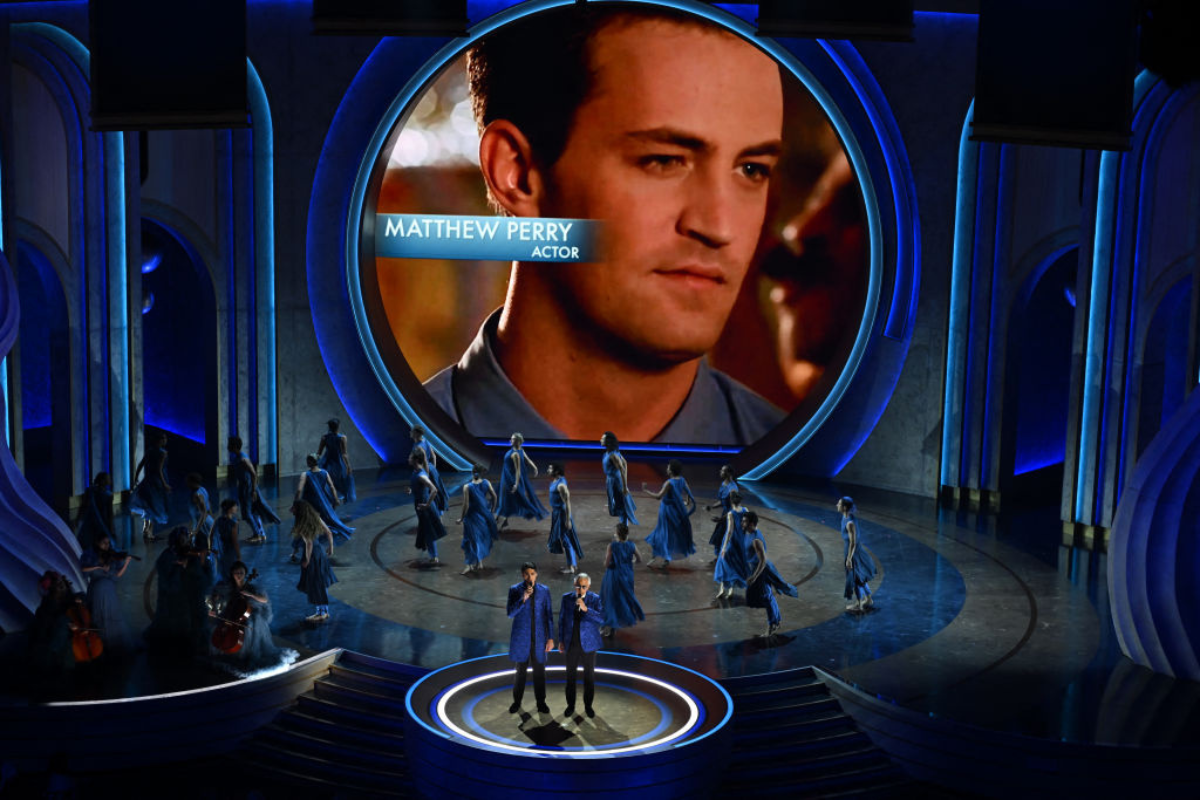A Memoriam Memorandum
Why are In Memoriam segments so bad lately, and what does it say about our relationship to death?

I didn't watch the Oscars on Sunday. I've been, uh, a little busy. I did, however, get a few concepts bubbling up through social media, and one of them touched a nerve.
The "In Memoriam" awards show segment is a very solemn occasion for me. Amid the glitz, it's important for me to reflect on the people lucky enough to make resonant artistic contributions before their time on this plane of existence came to a close. I often cry.
I mean, what is this.
I could not imagine crying over this segment, which ping-ponged tribute clips and photos across multiple screens of different sizes, buttressing these visuals between an increasing cast of performers, including operatic tenor Andrea Bocelli and his son, and a troupe of dancers who, at times, obscured the identifying text on screen.
Unfortunately, this desire to reinvent the In Memoriam is not limited to the Academy of Motion Picture Arts & Sciences. Since 2021, after waiting out the worst of the COVID-19 pandemic, the Grammy Awards have taken a similar tack, building a tribute package around emotive performances by notable names that threaten to overshadow their purpose.
This performance was at least emotional, even if the tribute packages didn't necessarily fit around it.
Must we give in to the craving for spectacle so much that we change the meaning of this moment? Is it so hard to limit a segment like this to a clip reel and an orchestra? Does this trend have to do with our increasing inability to regard death normally?
Perhaps I'm being a little extreme on that last one. But at the same time, it's hard to deny that, particularly if you're on the Internet a lot, it's a conversation that's changed considerably. Twitter and its ilk have turned every notable passing into an ad-hoc digital wake where kindred spirits and contrarians alike are thrown together to share thoughts on someone who's not there to defend themselves anymore (and may never have been in the first place). Often, the wave shifts from straightforward reportage to emotional eulogizing, then to a sometimes fervent wave of pointing out the flaws of the deceased before the body is cold (and an equal and opposite grinding of teeth against that sentiment).
Sometimes, there's an impulse to be flip or contrarian: writer Brandon Soderberg issued a taut rejoinder upon Roger Ebert's passing that's since become a meme among the extremely online writer class. We actively wish death on aged wrongdoers, knowing we can never serve them appropriate justice and rarely thinking about the grieving loved ones they leave behind. Suicide can become a meme (one I'm guilty of partaking in), but we also call it "unaliving," seemingly to blunt the impact or make it easier to discuss.
This performance from H.E.R. at the Emmys in 2020 is a more fitting version of what I think these awards shows are trying to do now.
There are no easy answers or "solutions" to any of this - social media is a niche concern, and I don't like extrapolating its lessons to reality if I can help it. But it is a real hope of mine as an active, aware person in communities that we should respect the complexity and nuance around one of the most sobering, unknowable and final facets of life. Or, at the very least, get the dancers out of the way of the screen.
